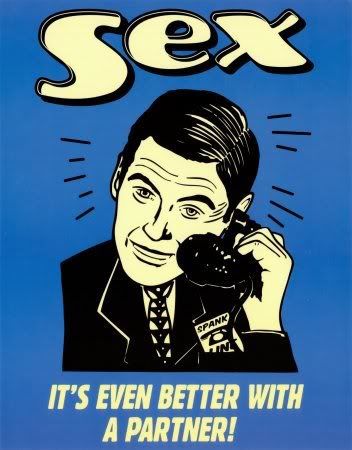Not to knock it, because I love my local library. Though I prefer to hang out at Barnes & Noble because of the newness of the books and bigger selection, I can't walk into the place without dropping $100+ on books I really don't need. Since my husband isn't here to moderate my spending, I decided to go where the books are free.
I found a title that I have been eyeing for awhile on amazon.com: Self-Made Man by Norah Vincent.
I immediately jumped in upon returning home and ended up finishing it in a single sitting. I am now pleased to recommend this book to all of you who are interested in issues of gender, but who would prefer to stay away from the scientific (or not-so-scientific) side of things.
Norah Vincent is a journalist who decided to spend a year and a half living the life of a man. She is not transgender or transexual. She is a lesbian, which gave her a unique point of view for telling this story because she was able to truly get inside the life of a heterosexual male.
I say get inside the "life" rather than get inside the "head" of men, because most of her story deals with how other people treat men. It would have been impossible for her to truly think and feel as a man does without the social cues around her. In other words, when she came home at night she was still a woman. (For the most part, but I'll get to that.)
Her journey was not as simple as taking on a male persona in her own daily life. She divided her experiment into several parts with the purpose of experiencing male culture as much as possible. She joined an all-male bowling league, frequented strip clubs, dated women, got a job in testosterone-fueled hardcore sales, spent some time living in a Catholic monastery, and even joined a men's support group and joined them on one of their retreats. The chapters of the book are split up according to each phase she experienced.
I'd like to share some quotes with you from this book - ones that I thought were interesting, thought-provoking, and that I thought you would feel the same way about.
This first one is particularly relevant for the discussion that has been going on over at several blogs on the topic of the male gaze - see PhysioProf, DrugMonkey, SciCurious and others if you don't know what I'm talking about.
Talking about the first night she ever dressed in drag (on a dare) and the night she conceived of the idea for this book, she writes:
"I had lived in this neighborhood for years, walking its streets where men lurk outside of bodegas, on stoops, and in doorways much of the day. As a woman, you couldn't walk down the streets invisibly. You were an object of desire or at least semiprurient interest to the men who waited there, even if you weren't pretty - that, or you were just another pussy to be put in its place. Either way, their eyes followed you all the way up and down the street, never wavering, asserting their dominance as a matter of course. If you were female and you lived there, you got used to being stared down because it happened every day and there wasn't anything you could do about it.
But that night in drag, we walked by those same stoops and doorways and bodegas. We walked by those same groups of men. Only this time they didn't stare. On the contrary, when they met my eyes they looked away immediately and concertedly and never looked back. It was astounding, the difference, the respect they showed me by not looking at me, by purposely not staring.
That was it. That was what had annoyed me so much about meeting their gaze as a woman, not the desire, if that was ever there, but the disrespect, the entitlement. It was rude, and it was meant to be rude, and seeing those guys look away deferentially when they thought I was male, I could validate in retrospect the true hostility of their former stares.
But that wasn't quite all there was to it. There was something more than respect being communicated in their averted gaze, something subtler, less direct. It was more like a disinclination to show disrespect. For them, to look away was to decline a challenge, to adhere to a code of behavior that kept the peace among human males just as surely as it kept the peace and the pecking order among male animals. To look another male in the eye and hold his gaze is to invite conflict, either that or a homosexual encounter. To look away is to accept the status quo, to leave each man to his tiny sphere of influence, the small buffer of pride and poise that surrounds and keeps him" (p. 3).
This passage is a great illustration of both the tone and the content of this book.
Here is another great one that deals with the issue of Norah dating as a heterosexual man (Ned was her name when in costume):
"Yet as much as these women wanted a take-control man, at the same time, they wanted a man who was vulnerable to them, a man who would show his colors and open his doors, someone expressive, intuitive, attuned. This I was in spades, and I always got points for it, but feeling the pressure to be that other world-bestriding colossus at the same time made me feel very sympathetic toward the heterosexual men, not only because living up Caesar is an immensely heavy burden to bear, but because trying to be a sensitive new age guy at the same time is pretty well impossible. If women are trapped by the whore/Madonna complex, men are equally trapped by this warrior/minstrel complex. What's more, while a man is expected to be modern, that is, to support feminism in all its particulars, to see and treat women as equals in every respect, he is on the other hand often still expected to be traditional at the same time, to treat a lady like a lady, to lead the way and pick up the check" (p. 112).
Vincent writes with incredible sensitivity, clarity, and insight into how men and women differ. She is not a scientist and this was not a scientific experiment, but her observations are in line with what current gender research tells us about gender orientation.
I urge all of you to read this book. Women will gain insight into how the men in their lives think and operate in the world around them, and how that world operates on them. Men may find validation in the things they experience but have never verbalized. I would think that, as a man, it would be very interesting to find out how women see them from the inside out.
Norah Vincent experienced what can only be described as a nervous breakdown from this project due to the incredible amount of cognitive dissonance she experienced. She describes it as "holding two mutually exclusive thoughts in my head while trying to ride a bike and juggle at the same time." The implications of what she experienced, I think, may be incredibly important for understanding transgender and gender dissonant conditions. I would love to see this book more widely circulated so it can get the attention from the scientific community that it deserves.










